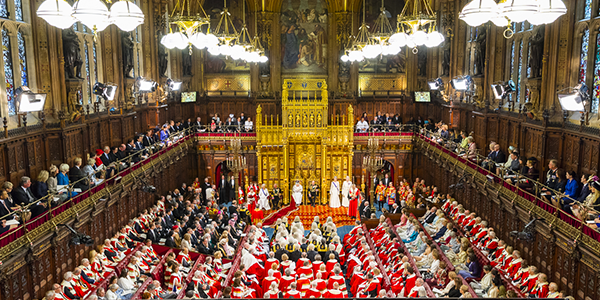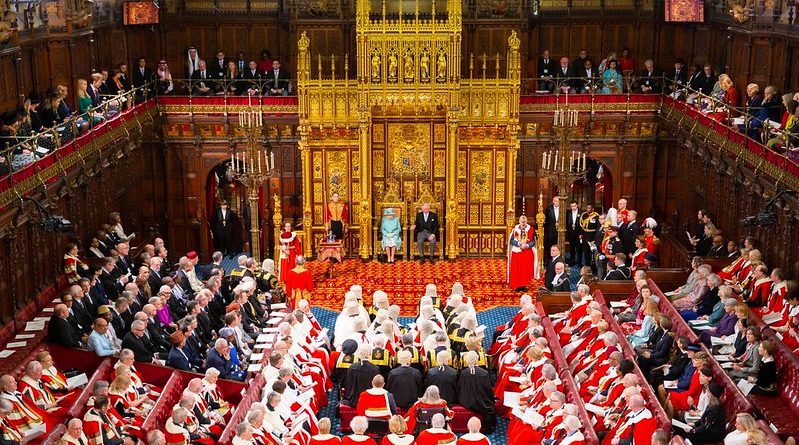Table Of Content

The party will set out further details before the next general election, which has to take place before January 2025. Most Lords are entitled to a £342 daily allowance for each sitting day attended - although they can choose not to claim. The House of Lords does not have a fixed number of seats, and its size fluctuates as members leave and join. Political journalist Zoe Grunewald joins the podcast team to weigh up the prime minister's Rwanda Act.
Removal from House membership
The crisis damaged the political influence of the House of Lords but did not altogether end it. Lords Temporal include life peers, excepted hereditary peers elected under the House of Lords Act 1999 and remaining law life peers. The vast majority are life peers who have been appointed for life, either as political appointees nominated by party leaders, or as crossbench peers unaffiliated to a party who are appointed for their expertise. Many have or have had successful careers in business, culture, sports, academia, law, health, public service or politics. Typically, these are sessional committees, meaning that their members are appointed by the House at the beginning of each session, and continue to serve until the next parliamentary session begins. In practice, these are often permanent committees, which are re-established during every session.
Membership
Much of the nobility was killed on the battlefield or executed for participation in the war, and many aristocratic estates were lost to the Crown. Moreover, feudalism was dying, and the feudal armies controlled by the barons became obsolete. Henry VII (1485–1509) clearly established the supremacy of the monarch, symbolised by the "Crown Imperial". The domination of the Sovereign continued to grow during the reigns of the Tudor monarchs in the 16th century. The Crown was at the height of its power during the reign of Henry VIII (1509–1547).
Minister urges MPs and peers to back Rwanda bill as likely final day of debate begins
In 1968 the Labour Government of Harold Wilson attempted to reform the House of Lords by introducing a system under which hereditary peers would be allowed to remain in the House and take part in debate, but would be unable to vote. This plan, however, was defeated in the House of Commons by a coalition of traditionalist Conservatives (such as Enoch Powell), and Labour members who continued to advocate the outright abolition of the Upper House (such as Michael Foot). The Lords contains many excellent individuals whose wisdom is much valued by the public sector. But its total of 800 members include many who have been accused of buying seats from political parties with cash or other favours, an accusation that the House of Lords persistently denies. A further quarter of peers are ex-MPs for whom the Lords is an old people’s club and source of modest pension. A mere 182 peers are independents who do not accept the discipline of a “whip” from one or other of the Commons parties.
Resigned under the Constitutional Reform and Governance Act 2010
The power of Parliament grew slowly, fluctuating as the strength of the monarchy grew or declined. For example, during much of the reign of Edward II (1307–1327), the nobility was supreme, the Crown weak, and the shire and borough representatives entirely powerless.
UK politics live: Parliament braces for Rwanda bill showdown as Sunak promises flights by July - inews
UK politics live: Parliament braces for Rwanda bill showdown as Sunak promises flights by July.
Posted: Sat, 27 Apr 2024 03:20:54 GMT [source]
Current sitting members
The first English Parliament is often considered to be either Simon de Montfort's Parliament (held in 1265) or the "Model Parliament" (held in 1295), which included archbishops, bishops, abbots, earls, barons, and representatives of the shires and boroughs. Other things being equal, most parliaments are better with second chambers than without them. But its undemocratic composition deprives it of the legitimacy to impede rather than merely advise the government of the day. Keir Starmer has even promised to abolish and replace the House of Lords, but then so have most of his predecessors, with no specific plan. It delivers appalling value for huge sums of public money, and is a mere sop to rightwing voters. That request was made in order to meet the pledge Rishi Sunak made to “stop the boats”, despite polling showing that support for the Rwanda bill was low.
Other ministers
This new parliament was, in effect, the continuation of the Parliament of England with the addition of 45 Members of Parliament (MPs) and 16 Peers to represent Scotland. From the moment the plan was first introduced in 2022, under then Prime Minister Boris Johnson, experts said it would breach Britain’s human rights obligations under domestic and international law. Lord Carlile of Berriew, a leading lawyer and independent crossbencher, signalled his continuing opposition, saying the Government’s current Rwanda Bill was “ill-judged, badly drafted, inappropriate” and “illegal in current UK and international law”.
It is no wonder the chamber has resisted all suggestions of reform over the course of the 21st century. Members of the House of Lords spend a lot of their time considering draft government bills before they become law. Its primary function is therefore as a ‘revising’ chamber, asking the Commons to reconsider its plans. The power of the Lords is further restricted by the Salisbury Convention, which says that the Lords should not block government bills that implement policies proposed in an election manifesto. During the 2017–19 parliament, there was debate surrounding whether the Lords violated the Salisbury Convention when amending the European Union (Withdrawal) Bill and Data Protection Bill.
Parliament is the legislative body of the United Kingdom and is the primary law-making institution in Great Britain’s constitutional monarchy. The history of the legislative body—which meets in the Palace of Westminster in London—shows how it evolved almost organically, partly in response to the needs of the country’s reigning monarch. Parliament traces its roots back to the earliest meetings of English barons and commoners in the 8th century. During question time and debates in the chamber members put questions to government ministers who must respond. Up to the passing of the Parliament Act 1911, the House of Lords held the power to veto bills passed by the Commons.

And in a system somewhat different from that of the United States, government ministers (including the Prime Minister) must regularly answer questions in the House of Commons. And the M.P.s elected effectively held their seats for the next 18 years, during which no general election was called. The present-day Parliament is a bicameral (“two chambers”) legislature with a House of Lords and a House of Commons. These two houses, however, weren’t always joined, and had their earliest beginnings in the Anglo-Saxon council governments of the 8th century. Under section 137(3) of the Constitutional Reform Act 2005, holders of certain judicial offices who are peers are disqualified from sitting and voting in the House of Lords while in office.[3] The following peers are currently subject to this provision.
Until 1999 its membership included clergy, hereditary peers, life peers (peers appointed by the prime minister since 1958), and the judges of the Supreme Court of Judicature (Britain’s final court of appeal). Though it predates the House of Commons and dominated it for centuries, its power has gradually diminished. Its power to affect revenue bills was constrained by the Parliament Act of 1911, and in 1949 its power to delay by more than a year the enactment of any bill passed by the Commons was revoked. In 1999 the hereditary peers lost their right to sit in the House of Lords, though an interim reform retains their voice in a more limited fashion. The body’s chief value has been to provide additional consideration to bills that may be not be well formulated.
By convention, however, the Prime Minister allows leaders of other parties to nominate some life peers, so as to maintain a political balance in the House of Lords. Moreover, some non-party life peers (the number being determined by the Prime Minister) are nominated by the independent House of Lords Appointments Commission. In 1999, the Labour government brought forward the House of Lords Act removing the right of several hundred hereditary peers to sit in the House. The Act provided, as a measure intended to be temporary, that 92 people would continue to sit in the Lords by virtue of hereditary peerages, and this is still in effect. Archbishops and bishops of the Church of Scotland historically sat in the Parliament of Scotland but were finally excluded in 1689 (after a number of previous exclusions) when the Church of Scotland became permanently Presbyterian. There are no longer archbishops and bishops in the Church of Scotland in the traditional sense of the word, and that Church has never sent members to sit in the Westminster House of Lords.
These committees are typically empowered to make reports to the House "from time to time", that is, whenever they wish. Other committees are ad-hoc committees, which are set up to investigate a specific issue. When they are set up by a motion in the House, the motion will set a deadline by which the Committee must report. After this date, the committee will cease to exist unless it is granted an extension.


No comments:
Post a Comment